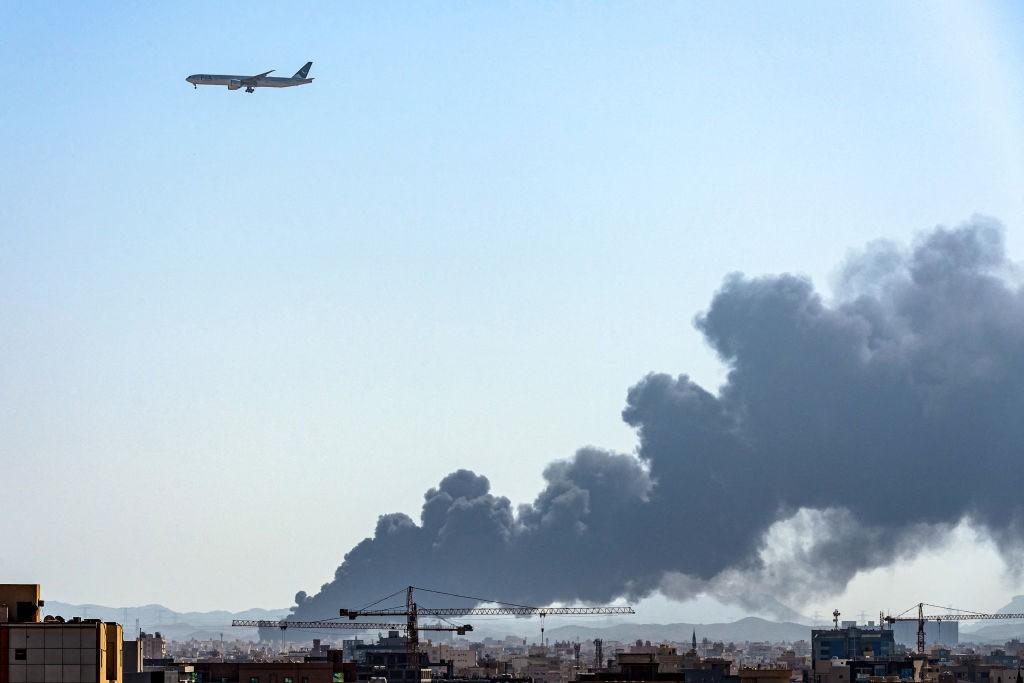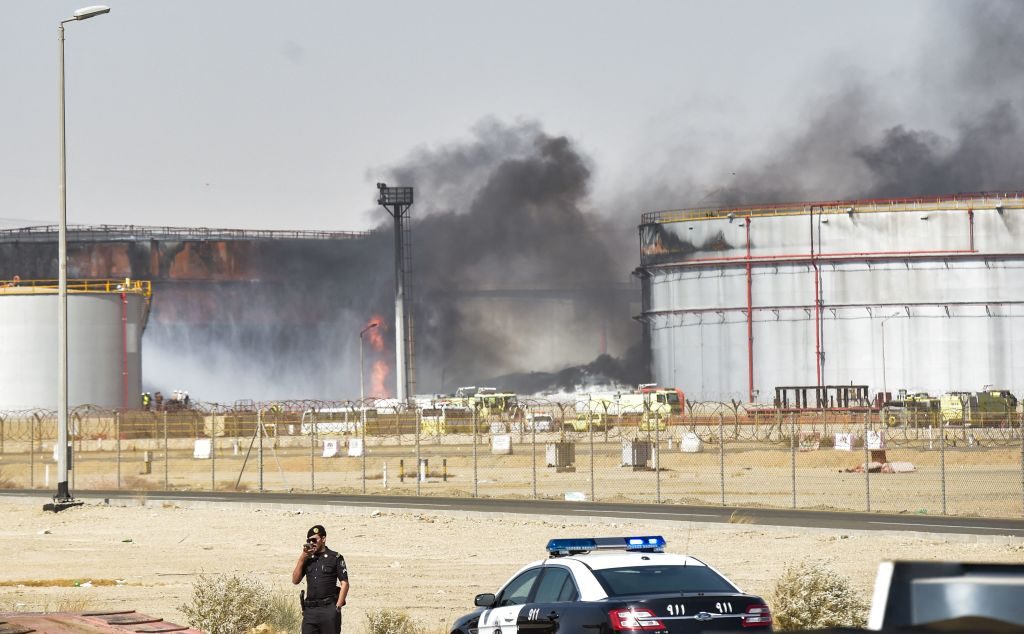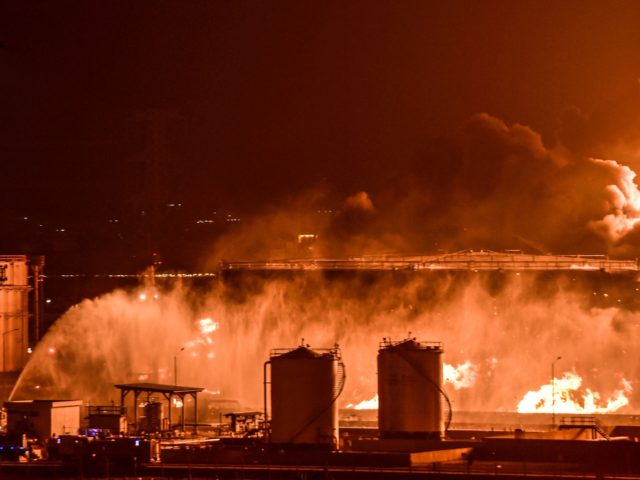Saudi Energy Minister Prince Abdulaziz bin Salman said on Tuesday recent attacks on Saudi oil facilities by Yemen’s Houthi terrorists have compromised Riyadh’s ability to supply the globe with sufficient energy, the Associated Press reported.
Speaking at the United Arab Emirates (U.A.E.)-sponsored World Government Summit in Dubai on March 29, Bin Salman referenced “attacks by Yemen’s Iran-backed Huthi rebels on Saudi oil facilities, including a wave of drone and missile strikes on Friday [March 25],” according to Agence France-Presse (AFP).
The Saudi energy minister said these attacks had “put into question our ability to supply the world with the necessary energy requirements.”
“In the old days, we, along with our friends here in the UAE, worked on a collective effort to assure and ensure energy security. These pillars are no longer there,” Bin Salman observed.
Yemen’s Houthi jihadists have claimed responsibility for a recent spate of assaults on oil plants in neighboring Saudi Arabia. The governments of the U.S. and Saudi Arabia have said the Houthis are armed by Iran, though Tehran denies the allegation.
The Houthi terrorist group overthrew the legitimate government of Yemen in 2015, prompting a civil war that continues today. The Shiite jihadist group is aligned with Iran and operates under the slogan “Allahu Akbar, Death to America, Death to Israel, a Curse on the Jews, Victory to Islam.”
President Joe Biden delisted the Houthis as a foreign terrorist organization as one of his first acts in office.

A Pakistan International Airlines (PIA) aircraft flies above as smoke rises from a Saudi Aramco oil facility in Saudi Arabia’s Red Sea coastal city of Jeddah, on March 26, 2022, following a reported Yemeni rebels attack. (ANDREJ ISAKOVIC/AFP via Getty Images)
Bin Salman alluded to Riyadh’s contentious relationship with Tehran, its regional rival, on Tuesday when explaining Saudi Arabia’s decision not to push Russia out of an oil production alliance it heads called the Organization of the Petroleum Exporting Countries Plus (OPEC+). Iran has been a member of the Saudi-led OPEC (the progenitor of OPEC+) since its founding in 1960.
“When we get into the OPEC meeting room or building, everybody leaves his politics outside the door of the building, and that culture has been with us,” Bin Salman said on March 29 in Dubai.
“We managed to compartmentalize our political differences from what is for the common good of all of us,” he added.
The U.S. government has pressured Riyadh to oust Moscow from OPEC+ since February 24 when Russia launched a military invasion of Ukraine. Washington has led the globe in imposing a raft of financial sanctions on Moscow since late February as part of a concerted effort to punish Russia for its decision to go to war with Ukraine. The U.S.-led campaign has also encouraged global financial institutions, such as the Group of 20 (G20) major economies, to blacklist Russia and deny it further membership.
“The U.S. and its partners are asking to politicize [OPEC’s relationship with Russia.] We will not do it,” U.A.E. Energy Minister Suhail bin Mohammed al-Mazrouei said on March 29 in Dubai at the World Government Summit, as quoted by the Wall Street Journal (WSJ).
“Mr. Mazrouei said he hadn’t been contacted by the U.S., but he had heard from OPEC colleagues and public statements that the OPEC alliance with Russia had been condemned in the U.S.,” according to the WSJ.

A policeman stands guard as firefighters extinguish the last hearths of fire at a Saudi Aramco oil facility in Saudi Arabia’s Red Sea coastal city of Jeddah, on March 26, 2022, a day after a Yemeni rebels attack. (AFP via Getty Images)
Echoing the comments made by his Saudi counterpart on Tuesday, Al-Mazrouei said OPEC has refused to oust Iran from OPEC during the organization’s 62-year-long history “despite the fact they are throwing us missiles.”
He explained that OPEC has allowed Iran to maintain OPEC membership because booting even a single member from the group would drive up oil prices.
“Our aim is to calm the market, trying to come up with volumes as much as possible, and if we are asking anyone to leave, then we are raising the prices, then we are doing something against what the consumers want,” Al-Mazrouei said on March 29.
“Mr. Mazrouei said kicking Russia out of the alliance [OPEC+] would cause oil prices to rise,” WSJ reported of the U.A.E. energy minister’s further remarks on Tuesday in Dubai. “He and other OPEC leaders say that increasing oil production would result in investors looking with worry at the group’s shrinking spare capacity—the amount to which they can increase production.”
“Consumers are asking us to calm the prices. How can we squeeze some of the partners out?” Al- Mazrouei added.

COMMENTS
Please let us know if you're having issues with commenting.